The Austrian violinist Yury Revich, newcomer of the year in the last Echo awards, has been snapped up for management by ex-IMG start-ups Keynote Artists.
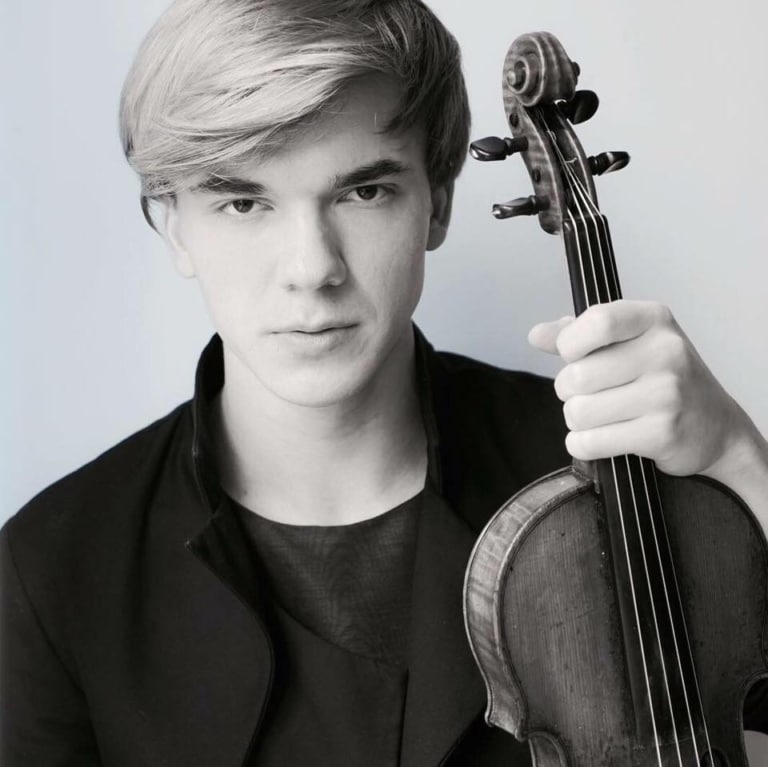
The Austrian violinist Yury Revich, newcomer of the year in the last Echo awards, has been snapped up for management by ex-IMG start-ups Keynote Artists.

The one known fact is that Charles Isherwood, the number two theatre critic, was dismissed on February 3 after executives ordered a scan of his emails.
No reason has been given for his dismissal. Speculation is rife.
Read it here.

From our weekly diarist Anthea Kreston:
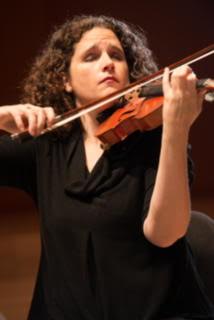
“What’s in my bag?”
I always think those little articles, “What’s in my purse” in magazines are hilarious. But (and here I must pat myself on the back a little), I must admit that I feel somewhat of an expert – a packing process which has developed into a fine-tuned machine this year.
I remember, on my first of 3 summer camping/backpacking trips to Europe as a young adult, how my huge backpack (sleeping bag and tent tied above and below) gradually became smaller as the summer progressed. I started with a hand towel and a toothbrush, and ended up trimming the towel smaller and smaller until I had a Kleenex-sized towel, and even sawed off my toothbrush (thanks to the guys at the Harley Davidson campground in Toulouse), leaving only a thumb-nail sized brush. And, lost along the way was also the top of my bikini (oh, to be 19 again….sigh).
So – here I am on my way to London (Wigmore Hall tonight), then to Brussels, Vienna, and Paris. At the beginning of my time with the Artemis Quartet, I would check a suitcase (just like everyone else), and carry only my violin on board. But, I began to realize how much I was spending, checking that one bag (checked luggage here is much more expensive than in the States). A person can often fly quite cheaply here – I flew my entire family, round-trip, to Florence the other week for €150. But – with luggage it would have been quadruple. I thought to myself, 8 months ago, if I can just pare down my packing, I could be saving €75 per leg of my journey – imagine how many croissants and hot chocolates that is for the girls! So – I began to bring only a messenger bag, and to utilize my coat pockets and any violin pockets.
Here is my list:
Toiletries: toothbrush, paste, flossers, hair gel, deodorant, razor, bandaids, neosporin, needle and thread, small scissors and nail clipper, emergency medicine (ibuprofen, tums, Claritin, sudafed, hard-core cold medicine, Vitamine c and echinacea, ear and nose drops) – all fits in a ziplock
Clothes: concert clothes (rollable), one underclothes per day (3 maximum, then wash in sink if longer tour), one slip shirt per day (goes over tank top, under day-jacket I wear on plane, 3 maximum)
Wear on plane: dark jeans and shoes that can walk and also look ok for post-concert parties, light jacket, winter jacket (in pocket are wallet, passport and phone, gloves), big scarf (can double as pillow on plane)
Entertainment, etc.: noise-cancelling earphones, podcasts updated on phone (TED Radio Hour, Coffee Break German, The Daily (NYT) and BBC News, Wait…..Wait, Don’t Tell Me), blank notebook, three books (one fiction, one music-related, one non-fiction), iPhone and cord, extra teeny foldable backpack, snacks (chocolate and veggies, rice cakes)
Music: folder with music for concerts, music to practice for the future, scores for study (hole punched and in folder), pencil and highlighters, stand
Today I bring my Trinity Violin Case on its maiden voyage. This is an exciting new case, with three interconnected segments. The first, a snuggle fitting backpack case, just the size of a violin (small pouch under the neck holds my rosin, hotel mute, and makeup (which is chapstick)). The second is a bow case, which either straps on to the violin, goes separately to for a rehair, or forms the deceptive handle for the rolling backpack. The third (which I did not purchase, but my first violinists travels with always) part is a rollable suitcase, in which the violin case nestles at an angle, is the right dimension for a carry-on – clothes are packed around violin, and the bow case is the handle (which unclips for storage). Brilliant!
Just got called for boarding – concerts are packed this week – the program (Beethoven, Bartok, Schumann Quintet) is a total pleasure. Until next week!
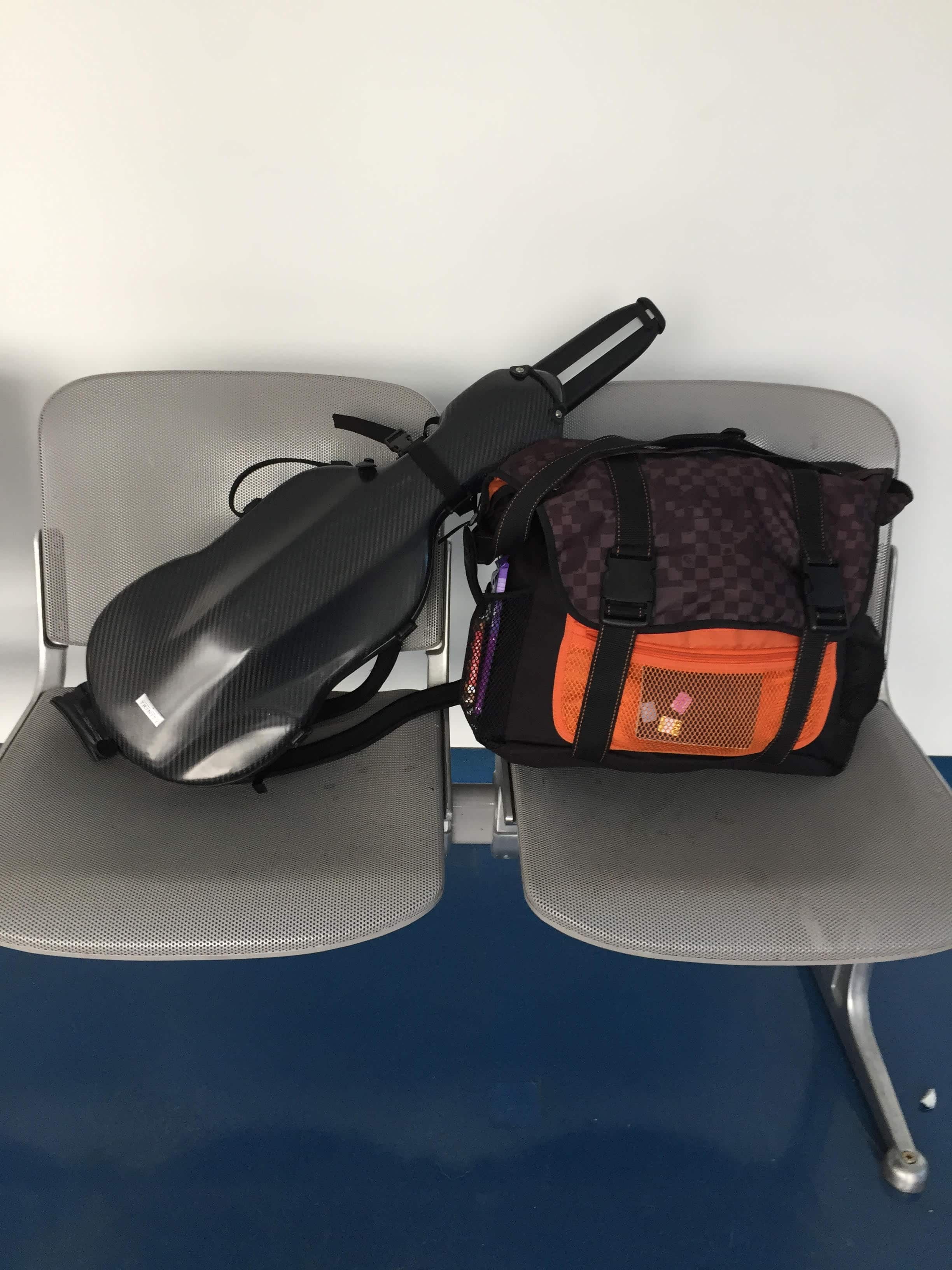
Jenny Heinz was turned away from a Budapest Festival Orchestra concert when she refused to remove from her jacket a sign reading, ‘NO! In the name of humanity we refuse to accept a fascist America.’
The action, by Lincoln Center officials, appears to justify her fears.
Read full story here.
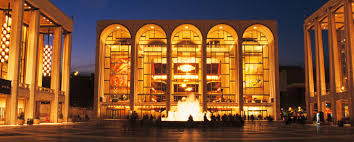
The initiative, marking the centenary of the country’s first chance at independence, underlines the role that music plays in forming national identity.
The scheme is in its early stages – fewer that 1,000 instruments have been purchased so far – but plans are in place to reach every school and family in the country.
Read here.
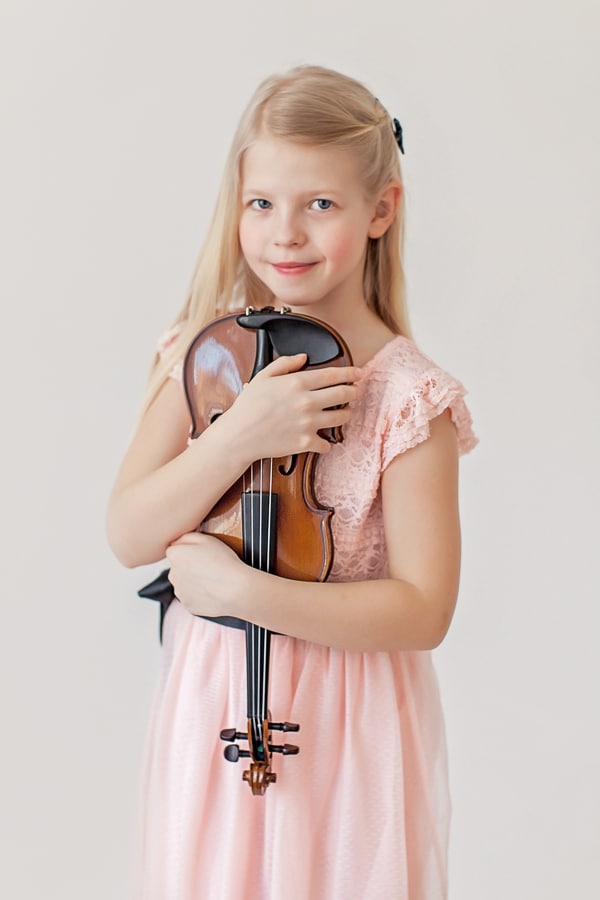
Our young Chicago friend Liam Jankelovics, 15, is co-principal double bass of the Chicago Youth Symphony Orchestra. He has recently enjoyed his first exposure to the music director of the CSO.
Here are Liam’s impressions:
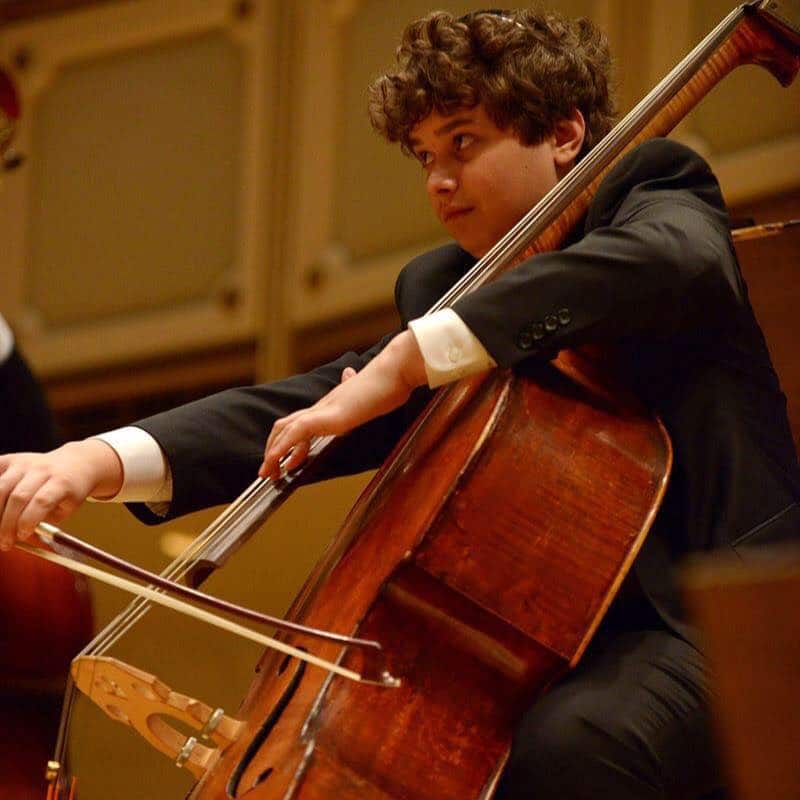
My Evening With Muti
Living in Chicago provides many incredible opportunities for young musicians, and although I get to hear many inspiring artists in concert, I never would have thought that I would get to actually perform with one of them. I am 15 years old, and have been playing double bass for six years. I currently serve as a co-principal of the bass section of the Chicago Youth Symphony Orchestra, and as inspiring as that is, I had no idea that it would lead me to performing onstage with one of the greatest conductors alive today. Last week, I played in the Chicago Youth in Music Festival, a weekend festival celebrating the vast amount of young talent in the Chicago area, culminating in an open rehearsal at Symphony Center under the baton of maestro Riccardo Muti. I was overjoyed when I was first invited to participate, and especially so when I learned that we would be playing Tchaikovsky’s fourth symphony. As someone who grew up going to concerts at Symphony Center, listening to the CSO, and marveling at the genius of maestro Muti, it was truly an honor to stand in the spot where many other masterful musicians have stood before me and to learn from Muti’s wisdom firsthand.

Maestro Muti is the personification of over 50 years of wisdom about conducting and playing music. However, he delivers his thoughts in such a charming and engaging way that we, as well as the audience, were immediately won over. At one point, he humbly told us that if we were to listen to each other more, we wouldn’t need a conductor. Sure enough, he told us to play the passage without him making even one gesture, and, forced to rely upon one another, we sounded much more coherent and together that way. This proved his point that conductors need to do as little as possible and not draw all the attention to themselves. “I am Neapolitan, if i want to make the clown i can do it better than anyone”, he said, talking about how flamboyant some conductors are. He of course had a lot to say about specific musical articulation, like how “staccato does not mean it’s Rossini”, and especially in this symphony we should not play too short and clipped. He also exhorted the string players to vibrate before playing the actual note or else it would be too late, and that the second movement (written “in modo di canzona”) should be played like “a peasant collecting tomatoes”, because “To make music in the simplest way is the most difficult thing”.
One can also see his opera heritage in everything that he does. He kept telling us how every instrument needs to be singing, even the timpani. As the timpanist accompanied the strings, Muti said “the violins are the spaghetti, the timpani is the sauce.” This, everyone onstage had no problem understanding. Maestro Muti specified, quoting Toscanini, that the short notes in particular need to be sung, because “they need our help”. He wanted the lines to be long and always have a direction, just like in an opera on stage. My favorite part of the rehearsal was when the Maestro Muti turned to the bass section and told us something totally unexpected: He said “The double bass is the most important instrument in the orchestra, every note should be full of life, even if it is repeated 300 times. It’s the foundation of the orchestra. If the basses lift the notes, the rest of the orchestra will breathe. You have a whole house in your hands!” As a young bassist, it was extremely inspiring to hear this from such a prominent and wise conductor like Maestro Muti.
This was a transformative experience, and surely one that I will remember and cherish for a very long time.
Balls is one of six new operas featured in ‘First Take’, a Los Angeles initiative.
The composer is Laura Karpman.
Read on here.
And view video here.
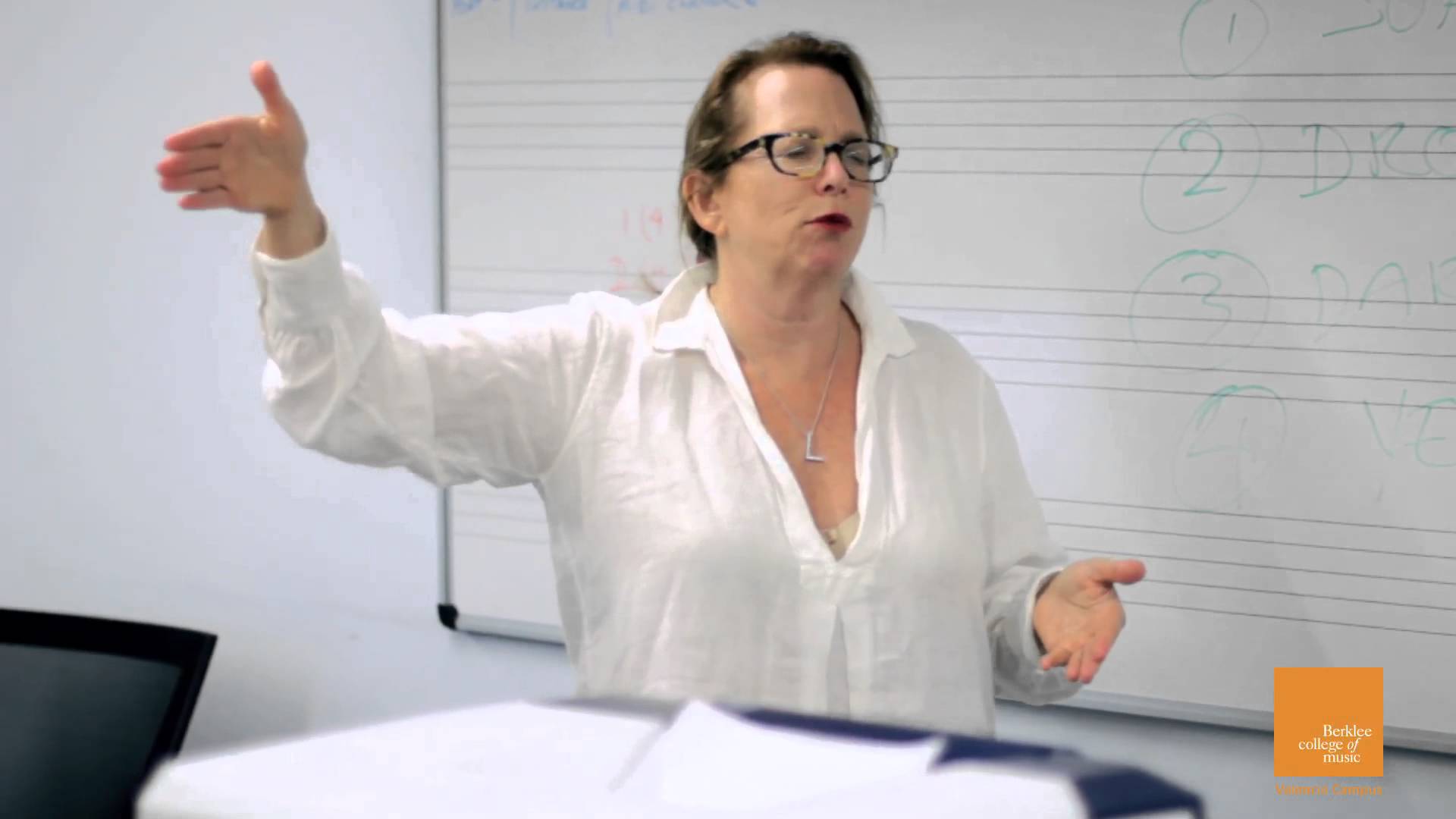
After his London mishaps, the German tenor sang at the general rehearsal yesterday of the Vienna Opera ball.
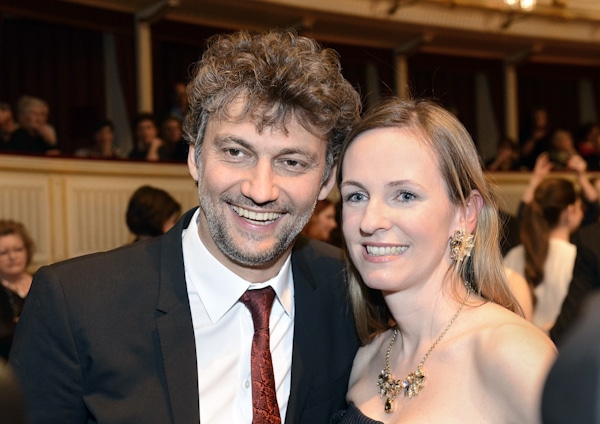
Jonas Kaufmann with designer Maria Großbauer. Photo: Barbara Zeininger
In my monthly essay for Standpoint, out now, I look at the way musicians represent milestones in our lives.
Waiting for a prescription in a hospital pharmacy in the dying days of 2016, I saw a young woman stacking shelves with toothpaste and analgesics. “First concert I ever went to,” she announced to me, unprompted.
“What was?”
“Status Quo. I was fifteen.”
“Ah.”
“And now he’s dead, Rick Parfitt.”
“Terrible year.”
“I’m writing a novel,” she went on. “Every chapter taken from a George Michael song. He’s gone, too.”
I grasped what she was trying to say. We measure our lives in the musicians we loved, each mortal loss a milestone in our own short term on earth, each death a diminution of our intimate selves. You would know, if I asked, where you were the night John Lennon was shot. You may also have been among the million who jammed the streets of Paris at news of the death of Barbara, bard of solitude, or the several millions who thronged Cairo when word spread that Umm Kalthoum was gone. We shed tears when musicians die, more than we do for a cousin or a neighbour, because theirs is the elixir that elevates humdrum lives, allowing an ill-paid shop assistant to dream of her future Nobel Prize for Literature.
It doesn’t quite work that way with classical musicians….
Read on here.
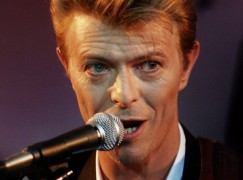
Can anyone justify this?
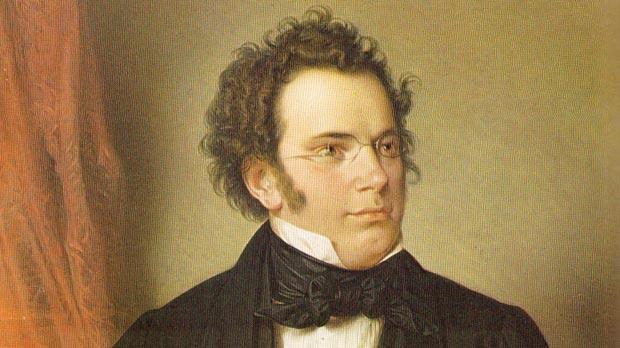
From the University of the Pacific, California:
Peter Witte has been appointed Dean of the Conservatory of Music. Peter comes to us from the University of Missouri-Kansas City (UMKC), where he has served as the Dean of their internationally renowned Conservatory of Music and Dance since 2008. He brings with him a record of increasing student diversity and academic success. The Provost is proud that the reputation of Pacific’s Conservatory has enabled us to attract such a talented leader to help shape its future.
During his tenure at UMKC, the Conservatory achieved its $48 million fundraising goal, the largest in UMKC history for a single project, for the proposed $96 million UMKC downtown arts campus. This project will move the Conservatory into the heart of Kansas City’s new downtown arts district. His other accomplishments include launching a more inclusive and holistic review of student applications, resulting in a 45 percent increase in enrollment of students of color and international students; increasing the number of degrees awarded and the undergraduate retention rate; and establishing partnerships with local music and arts organizations.
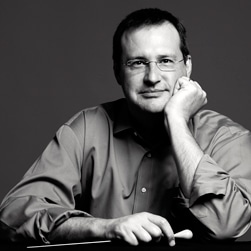
The New Zealand soprano Anna Leese, who has sung at Covent Garden and across Europe, recently married an Italian winemaker, Stefano Guidi, They have a small child.
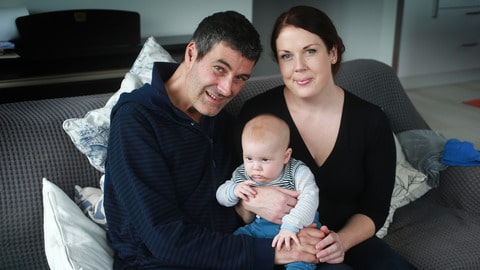
Stefano has received terrible news. He has an aggressive form of Motor Neurone Disease that is advancing fast. He has two years to live, they have been told.
Funds are needed to help Anna cope.
Friends have organised an benefit concert in London. Please try to go.
Details below. And read Stefano’s blog about their situation.
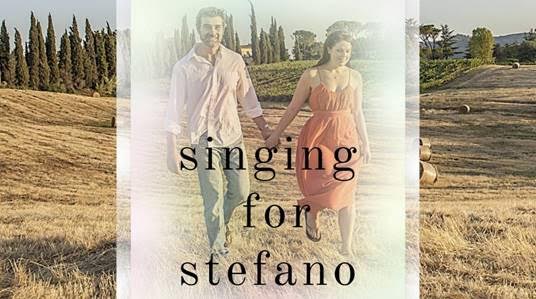
A Gala Benefit Concert – Singing for Stefano
Milton Court, 1 Milton Street, London, EC2Y 9BH (Location)
7.00pm on Saturday 8th April 2017
This star studded gala concert is being organised by the musical friends of New Zealand opera star Anna Leese to support husband Stefano Guidi, Anna and their baby Matteo in a time of great need.
The evening will be hosted by renowned baritone Sir Thomas Allen with many other star singers including Sophie Bevan, Sarah Castle, Jacques Imbrailo, Madeleine Pierard, David Butt Philip and Wendy Dawn Thompson, accompanied by Bryan Evans, Alisdair Hogarth and Gary Matthewman and Lada Valesova.
The patrons include two of the world’s great singers, José Carreras and Thomas Allen, along with the UK’s leading opera patron, Sir Vernon Ellis, this and New Zealand High Commissioner, Sir Lockwood Smith and his wife Alexandra.
New Zealand soprano Anna Leese trained at the Royal College of Music and has regularly graced the stage and concert platform in the UK and Europe.
Stefano, a passionate Italian wine maker and beautiful family man had only recently moved to New Zealand to create a new life with Anna. Last year just before the birth of Matteo, Stefano was diagnosed with the most aggressive form of Motor Neurone Disease. Already he is facing many frightening challenges, which require great emotional, physical and financial support. This is vividly described in Anna’s blog Happy New Year at
https://stefanosmndjourney.wordpress.com/
Our target is to raise £25,000 through this event, which will help them make the most of life and support Anna through the difficult times ahead. Tickets start at £25.